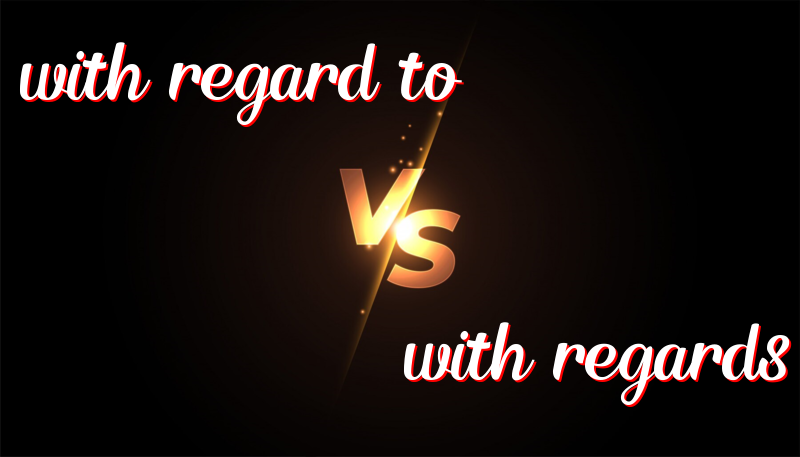Understanding the Difference Between With Regard to and With Regards to
Difference Between “With Regard to” and “With Regards to”
History
The phrase “with regard to” has been used in English for many years to talk about the relationship or connection between things. It came from old English where “regard” means “to look at or consider.” On the other hand, “with regards to” is often mistakenly used for “with regard to,” but it is not correct in formal writing.
How to Use Them
“With regard to” is the correct phrase to use when you want to talk about a specific subject or matter. It means “concerning” or “about.”
“With regards to” is not correct when you want to use it the same way as “with regard to.” However, “regards” can be used to send good wishes, such as “Best regards.”
Trick to Remember the Difference
Remember this: “regard” is for looking at or thinking about something specific. “Regards” is for sending your good wishes. If you are talking about a topic, use “with regard to.”
Example Sentences
With Regard to
- With regard to the meeting, it will start at 3 PM.
- With regard to your question, the answer is yes.
- With regard to the project, we are on track.
- With regard to your idea, I think it is great.
- With regard to the new plan, we all agree.
With Regards to
- She sends her best regards to you.
- Give my regards to your family.
- He always signs his letters with “Best regards.”
- The teacher sends her regards to all the students.
- They said their regards before leaving.
Summary
Use “with regard to” when talking about a specific subject or matter. Use “with regards to” only to send good wishes. They sound similar, but they have different uses. Remember, “regard” is for topics; “regards” is for good wishes.

Leave a Reply
You must be logged in to post a comment.